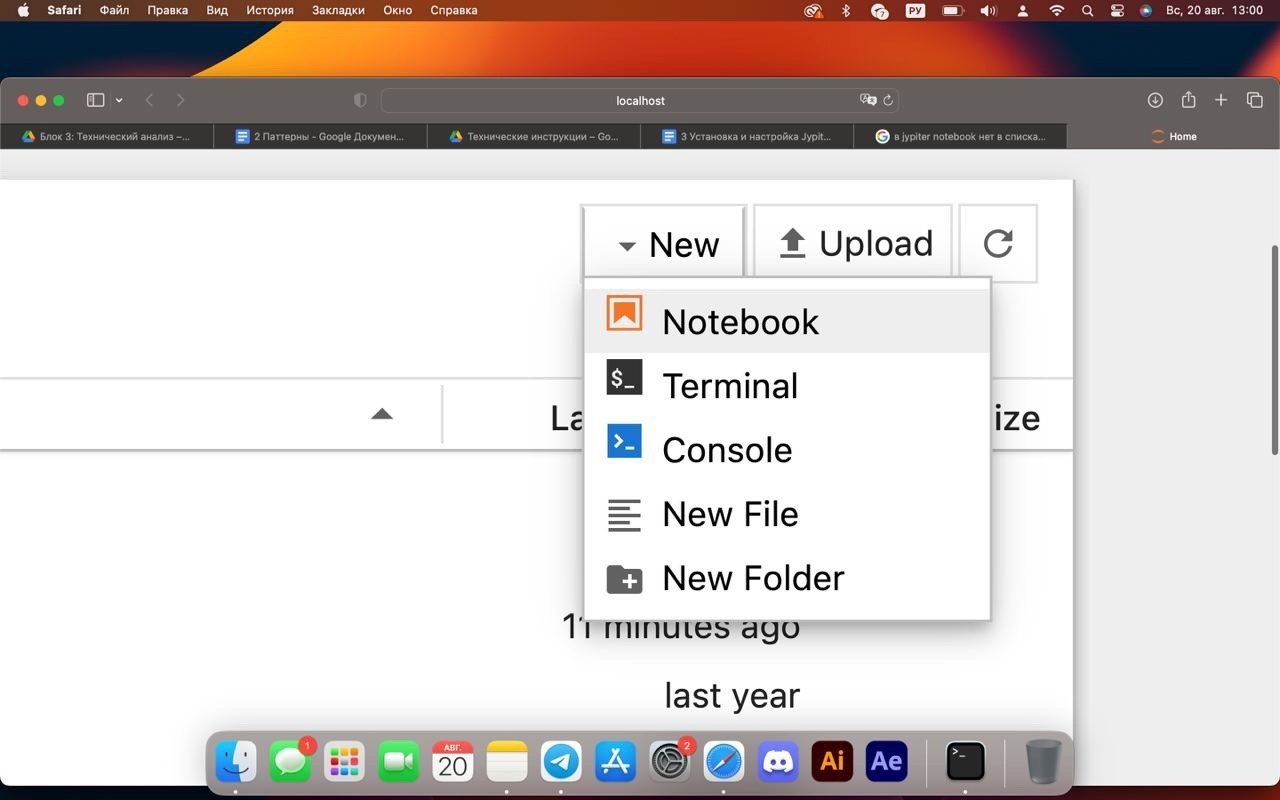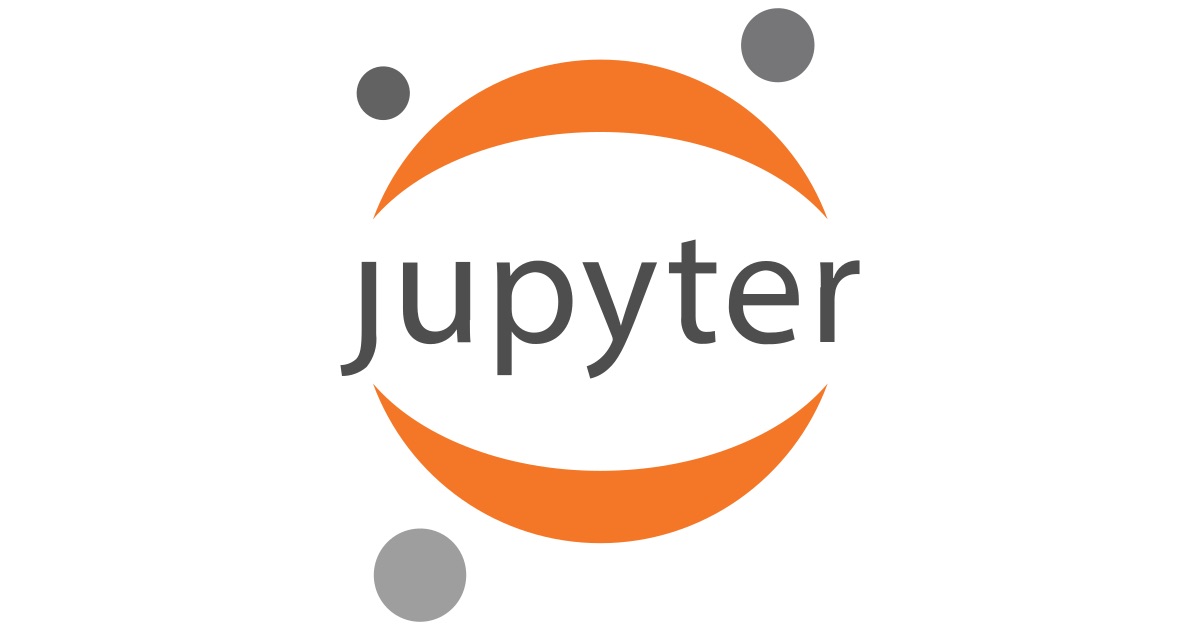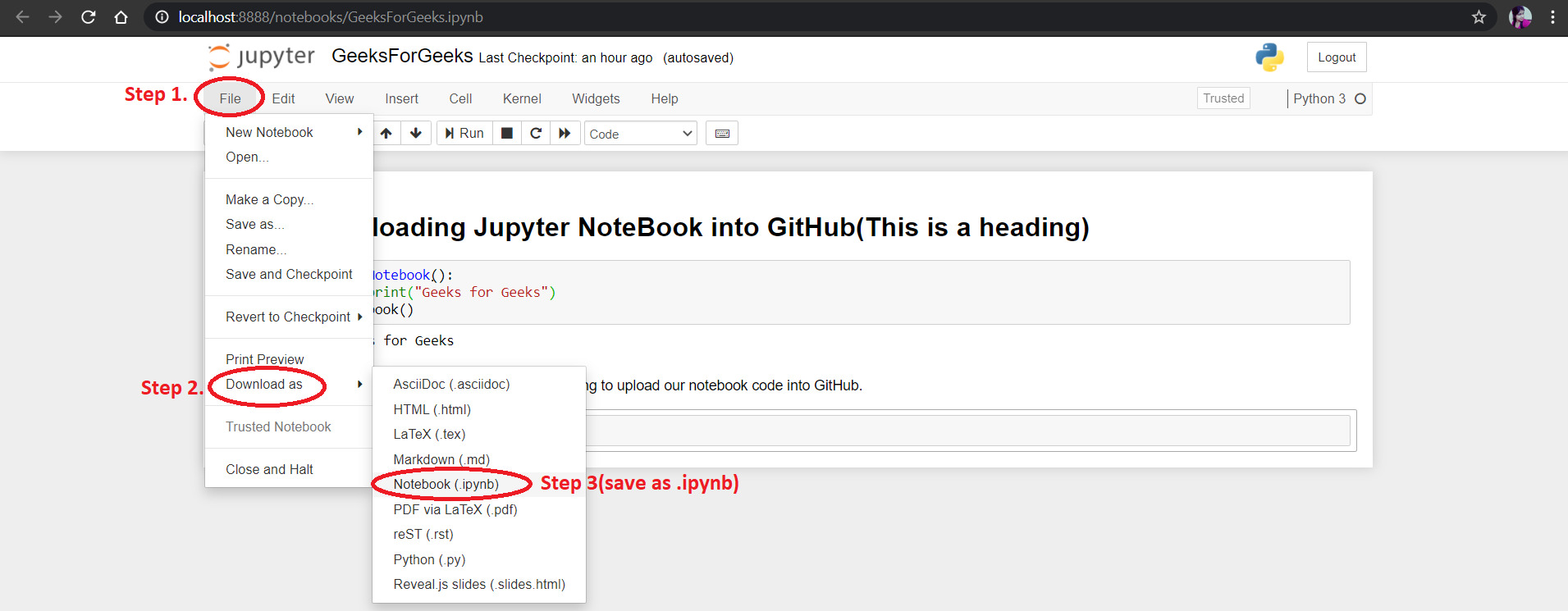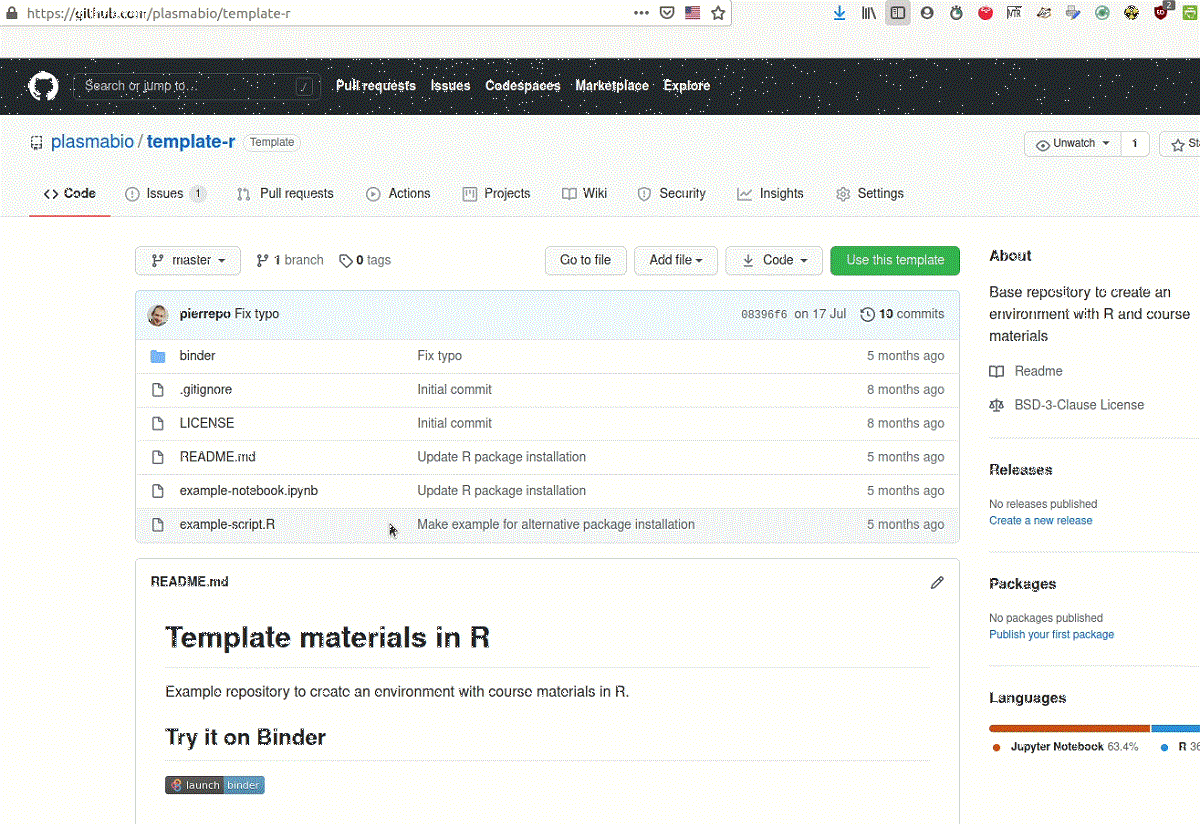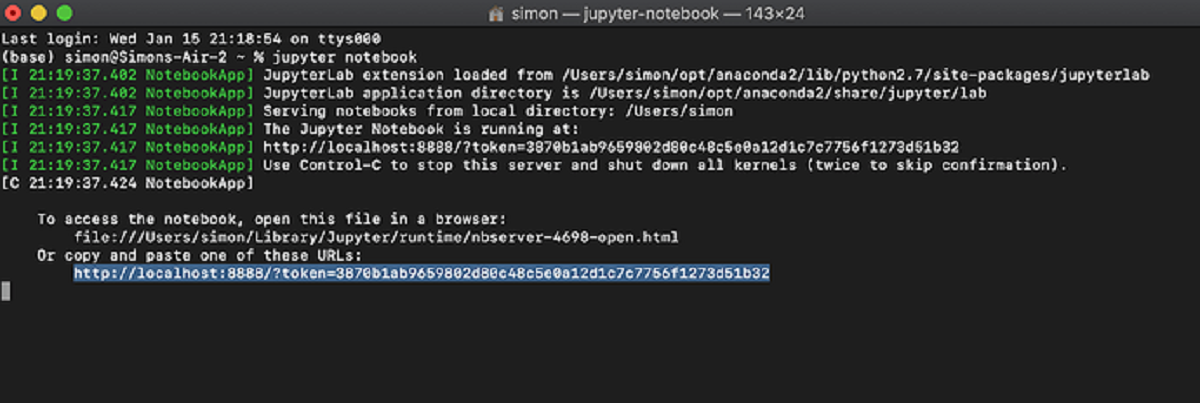Introduction
When it comes to web development, the use of Content Delivery Networks (CDNs) is a common practice to enhance the performance and reliability of websites and web applications. CDNs help in delivering web content efficiently by caching resources on servers located closer to the end users. This results in faster loading times and improved user experience.
However, when working with local CDN resources in the context of Jupyter Notebook, particularly on Chrome and Safari browsers, certain challenges may arise. These challenges can impact the functionality and display of web content, leading to frustration and hindrances in the development process.
In this article, we will delve into the intricacies of local CDN resources and explore the specific issues that may be encountered when utilizing them within Jupyter Notebook on Chrome and Safari. Furthermore, we will discuss potential solutions to mitigate these issues and ensure a smoother development experience.
By understanding the complexities surrounding local CDN resources and their compatibility with popular browsers within the Jupyter Notebook environment, developers and web enthusiasts can gain valuable insights into optimizing their workflows and addressing potential roadblocks effectively. Let's embark on this journey to unravel the nuances of local CDN resource utilization and pave the way for seamless web development experiences.
Overview of Local CDN Resources
Local Content Delivery Networks (CDNs) play a pivotal role in web development, offering a mechanism to efficiently deliver web content to users. These CDNs are designed to cache resources, such as JavaScript files, CSS stylesheets, and multimedia elements, on servers located in close proximity to end users. By doing so, CDNs facilitate faster content delivery, reduced latency, and enhanced overall performance of web applications.
When it comes to local CDN resources, developers have the flexibility to host and manage these resources within their own infrastructure, providing greater control over content delivery and customization. This approach is particularly beneficial for organizations that prioritize data privacy, security, and compliance with specific regulatory requirements.
Local CDN resources are commonly utilized to serve static assets, including libraries, frameworks, and custom scripts, which are integral to the functionality and aesthetics of web applications. By leveraging local CDNs, developers can streamline the deployment of web content, minimize reliance on external servers, and optimize the loading speed of their applications.
Furthermore, local CDN resources empower developers to implement tailored caching strategies, ensuring that frequently accessed content is readily available to users without incurring unnecessary network overhead. This level of control over content caching and delivery allows for a more personalized and efficient web browsing experience for end users.
In the context of Jupyter Notebook, local CDN resources are often integrated to support the development and visualization of web-based projects. Whether it involves incorporating interactive visualizations, data-driven dashboards, or dynamic user interfaces, the utilization of local CDNs within Jupyter Notebook is instrumental in creating compelling and responsive web content.
Understanding the significance of local CDN resources and their impact on web development workflows is essential for navigating the intricacies of content delivery and optimizing the performance of web applications. As we delve deeper into the challenges associated with local CDN resources on Chrome and Safari within Jupyter Notebook, it is crucial to recognize the fundamental role that these resources play in shaping the digital landscape.
Issues with Local CDN Resources on Chrome and Safari in Jupyter Notebook
When working with local CDN resources in Jupyter Notebook, developers may encounter specific challenges related to the compatibility and functionality of these resources on Chrome and Safari browsers. These issues can impede the seamless integration of web content and disrupt the development process, warranting a closer examination of their underlying causes and implications.
Compatibility Constraints
One of the primary issues revolves around the compatibility constraints exhibited by local CDN resources when accessed through Chrome and Safari within the Jupyter Notebook environment. Certain JavaScript libraries, CSS frameworks, or custom scripts hosted on local CDNs may exhibit discrepancies in rendering and execution, leading to inconsistencies in the appearance and behavior of web content. This disparity in compatibility can hinder the accurate representation of web elements and compromise the intended user experience.
Cross-Origin Resource Sharing (CORS) Limitations
Another prevalent issue pertains to Cross-Origin Resource Sharing (CORS) limitations encountered when utilizing local CDN resources on Chrome and Safari in Jupyter Notebook. CORS policies dictate the restrictions on accessing web resources from different origins, and when local CDN resources are loaded within the context of Jupyter Notebook, CORS-related conflicts may arise. This can result in the denial of resource access, thwarting the seamless integration of essential libraries and assets into web projects.
Rendering and Performance Discrepancies
Furthermore, rendering and performance discrepancies may manifest when local CDN resources are leveraged in Jupyter Notebook on Chrome and Safari. The rendering of dynamic visualizations, interactive components, or responsive layouts powered by local CDN resources may exhibit suboptimal performance or visual artifacts, detracting from the overall quality and interactivity of web content. These discrepancies can undermine the effectiveness of web development efforts and hinder the creation of engaging and immersive user experiences.
Debugging and Troubleshooting Complexity
The complexities associated with debugging and troubleshooting local CDN resource issues on Chrome and Safari within Jupyter Notebook add another layer of challenge for developers. Identifying the root causes of rendering inconsistencies, CORS conflicts, or performance degradation requires meticulous examination and testing, consuming valuable time and resources. This debugging process can impede the iterative development cycle and introduce uncertainties into the web development workflow.
Impact on User Experience and Development Workflow
Ultimately, the aforementioned issues collectively impact the user experience and development workflow within Jupyter Notebook. The inability to seamlessly integrate and leverage local CDN resources on Chrome and Safari can hinder the realization of creative web designs, data visualizations, and interactive features, limiting the potential of web projects and impeding the iterative refinement of web content.
Understanding the multifaceted nature of these issues is crucial for devising effective solutions to mitigate their impact and foster a more conducive environment for web development within Jupyter Notebook. By addressing these challenges, developers can unlock the full potential of local CDN resources and elevate the quality and performance of their web applications.
Possible Solutions
Addressing the challenges associated with local CDN resources on Chrome and Safari within Jupyter Notebook necessitates a strategic approach aimed at mitigating compatibility constraints, CORS limitations, rendering discrepancies, and debugging complexities. By implementing targeted solutions, developers can overcome these hurdles and optimize the utilization of local CDN resources, fostering a more seamless and productive web development environment.
Utilizing CDN Alternatives
Exploring alternative Content Delivery Network (CDN) options that align with the CORS policies and compatibility requirements of Chrome and Safari can mitigate the challenges posed by local CDN resources. Leveraging established CDNs with robust support for cross-origin resource sharing and comprehensive browser compatibility can alleviate rendering discrepancies and enhance the accessibility of essential web assets within Jupyter Notebook.
Local Resource Hosting
Opting for local hosting of critical resources, such as JavaScript libraries and CSS frameworks, directly within the Jupyter Notebook environment can circumvent CORS-related limitations and compatibility constraints. By hosting the necessary resources locally, developers can exert greater control over resource access and eliminate the complexities associated with cross-origin resource sharing, thereby ensuring a more cohesive integration of essential libraries and assets.
CORS Configuration Adjustments
Fine-tuning the Cross-Origin Resource Sharing (CORS) configuration to accommodate the specific requirements of Chrome and Safari within the Jupyter Notebook environment can alleviate access restrictions and bolster the seamless integration of local CDN resources. By adjusting CORS policies and headers to align with the browser specifications, developers can mitigate CORS-related conflicts and enable the unimpeded utilization of critical resources, enhancing the overall functionality and performance of web content.
Browser-Specific Debugging
Adopting browser-specific debugging tools and techniques tailored for Chrome and Safari can streamline the process of identifying and resolving rendering discrepancies and performance issues associated with local CDN resources. By leveraging browser developer tools and diagnostic utilities optimized for Chrome and Safari, developers can gain deeper insights into the root causes of rendering anomalies and optimize the performance of web content, expediting the debugging and troubleshooting process.
Community-Driven Insights
Engaging with developer communities and forums to seek insights and best practices for addressing local CDN resource challenges specific to Chrome and Safari can provide valuable perspectives and innovative solutions. Leveraging the collective expertise and experiences of the developer community can yield actionable strategies for mitigating compatibility constraints and CORS limitations, empowering developers to navigate the intricacies of local CDN resource utilization within Jupyter Notebook more effectively.
By embracing these targeted solutions, developers can surmount the challenges associated with local CDN resources on Chrome and Safari within Jupyter Notebook, fostering a more conducive environment for web development and empowering the seamless integration of essential assets and libraries. These solutions pave the way for enhanced compatibility, improved performance, and streamlined debugging processes, ultimately elevating the quality and functionality of web applications developed within the Jupyter Notebook ecosystem.
Conclusion
In conclusion, the utilization of local Content Delivery Network (CDN) resources within the Jupyter Notebook environment, particularly on Chrome and Safari browsers, presents a myriad of challenges that can impede the seamless integration and optimal functionality of web content. The compatibility constraints, Cross-Origin Resource Sharing (CORS) limitations, rendering discrepancies, and debugging complexities associated with local CDN resources underscore the need for strategic solutions to enhance the development experience and maximize the potential of web applications.
By delving into the intricacies of local CDN resource utilization and the specific issues encountered on Chrome and Safari within Jupyter Notebook, developers gain valuable insights into the complexities of content delivery and the nuances of web development workflows. The impact of these challenges on user experience and iterative development processes underscores the significance of addressing these issues effectively.
The proposed solutions, including exploring alternative CDNs, local resource hosting, CORS configuration adjustments, browser-specific debugging, and community-driven insights, offer actionable strategies for mitigating the challenges posed by local CDN resources. These solutions empower developers to navigate compatibility constraints, alleviate CORS limitations, optimize rendering performance, and streamline the debugging process, ultimately fostering a more conducive environment for web development within Jupyter Notebook.
By embracing these targeted solutions, developers can unlock the full potential of local CDN resources, enabling the seamless integration of essential assets and libraries while enhancing the quality, performance, and functionality of web applications. This, in turn, contributes to the creation of compelling and immersive user experiences, driving innovation and creativity within the web development landscape.
As the digital ecosystem continues to evolve, the ability to effectively leverage local CDN resources within Jupyter Notebook on Chrome and Safari browsers is instrumental in shaping the future of web development. By addressing the challenges and complexities associated with local CDN resources, developers can embark on a journey of continuous improvement, innovation, and seamless integration, propelling web applications to new heights of performance and user engagement.
In essence, the journey to harness the full potential of local CDN resources within Jupyter Notebook is marked by a commitment to overcoming challenges, embracing innovative solutions, and fostering a collaborative ecosystem of web development excellence. Through strategic adaptation and a relentless pursuit of optimization, developers can chart a course towards a future where local CDN resources serve as catalysts for unparalleled web experiences and transformative digital innovation.







